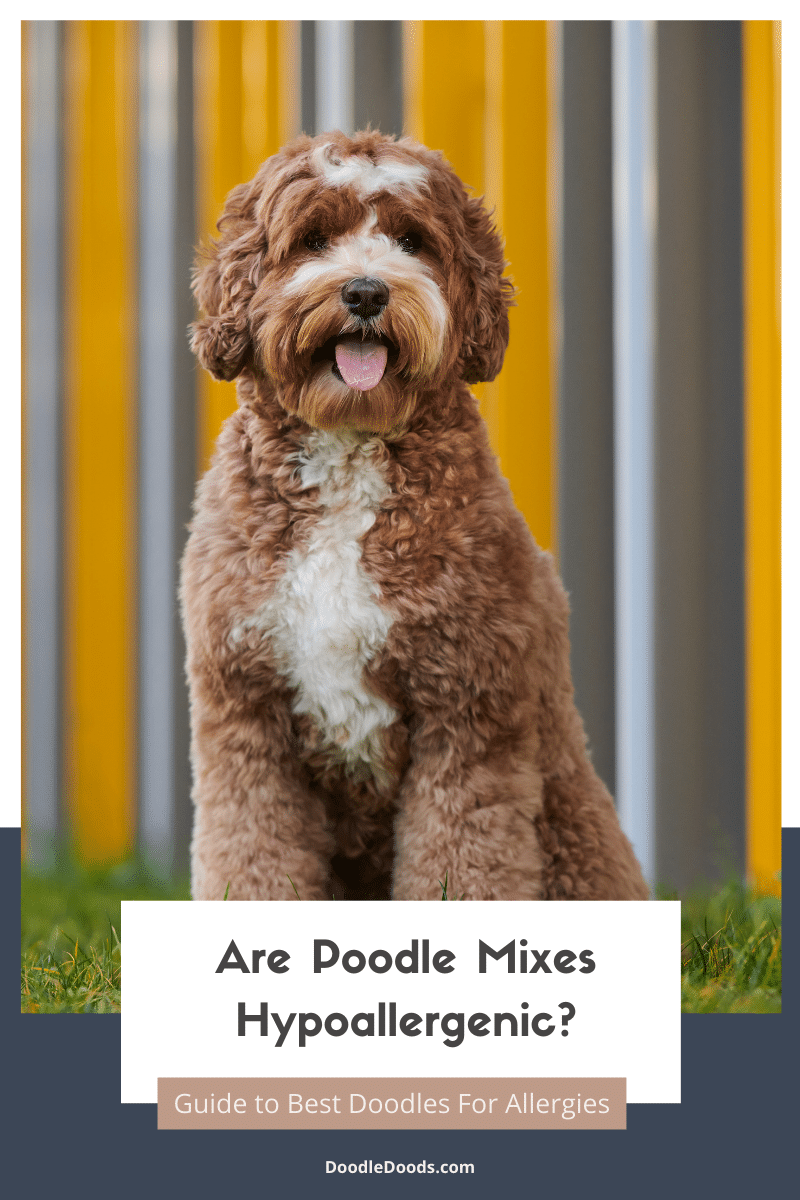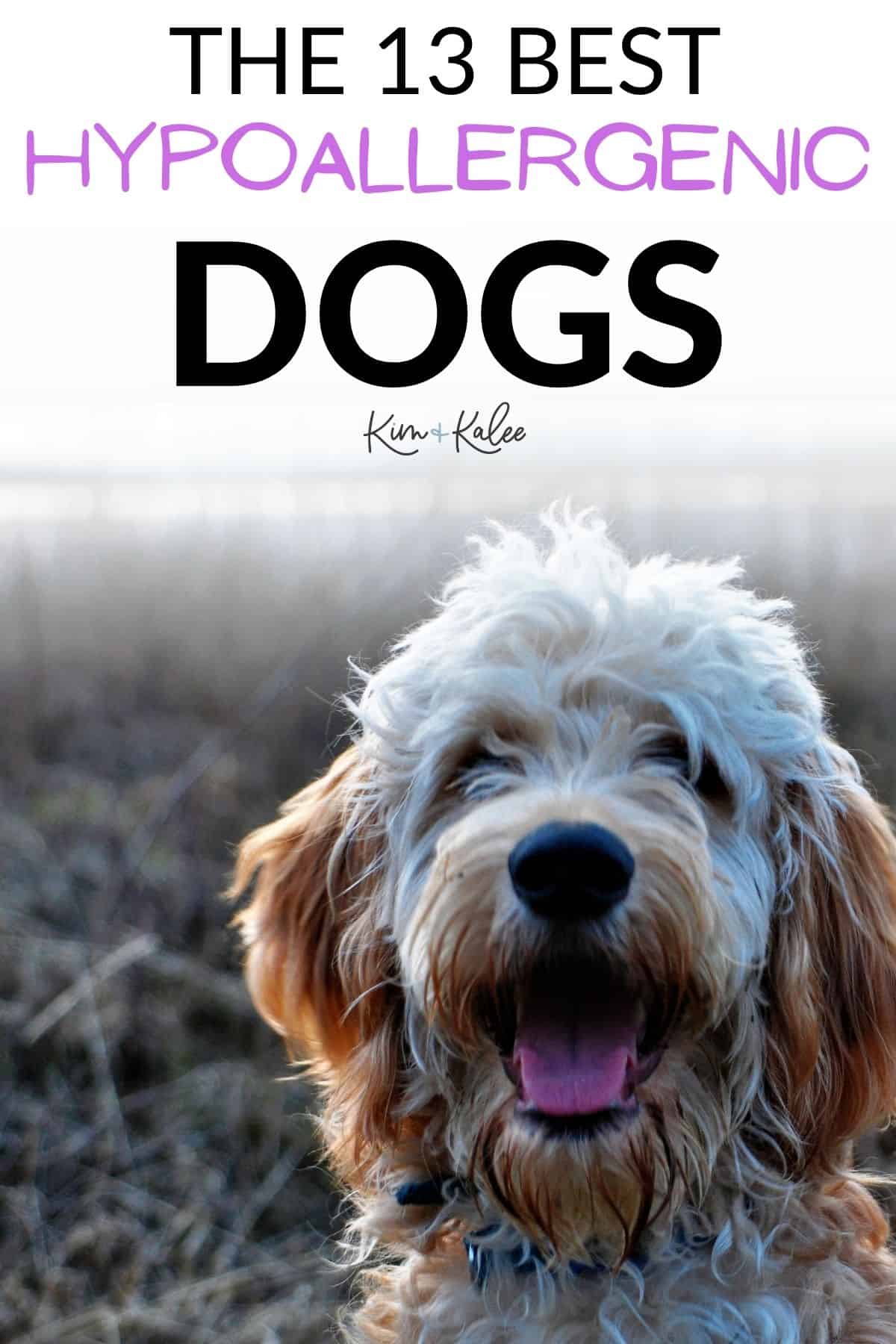When it comes to finding a poodle mix that is best for allergies, one interesting fact is that the Labradoodle is often considered a hypoallergenic option. The Labradoodle is a cross between a Labrador Retriever and a Poodle, combining the traits of both breeds. With their curly and low-shedding coats, Labradoodles are often a better option for individuals with allergies compared to other poodle mixes.
When considering a poodle mix that is best for allergies, it’s important to understand that poodle mixes are often chosen for their hypoallergenic qualities. Poodles themselves are known for having curly, non-shedding coats, which reduces the amount of dander and saliva that are known allergens. This makes poodle mixes, such as the Labradoodle, Goldendoodle, and Cockapoo, suitable options for individuals with allergies. In fact, according to the American College of Allergy, Asthma, and Immunology, approximately 10% of the population is allergic to dogs, and hypoallergenic poodle mixes can help alleviate symptoms for those individuals.
If you have allergies and are considering getting a poodle mix, there are a few options that are known for being hypoallergenic. Poodle mixes like the Labradoodle, Goldendoodle, and Cockapoo are often recommended for people with allergies. These breeds have a low-shedding coat that produces less dander, which is a common allergen. However, it’s important to note that individual reactions may vary, and it’s always best to spend time with the specific dog before making a decision.

Finding the Perfect Poodle Mix for Allergies
Allergies can be a major concern for dog lovers, especially those who suffer from pet allergies. If you or someone in your household has allergies but still want to enjoy the companionship of a dog, a poodle mix might be the perfect solution. Poodles are known for their hypoallergenic coat, which produces less dander and is less likely to trigger allergies. However, not all poodle mixes are created equal when it comes to allergies. In this article, we will explore the different poodle mixes and determine which ones are best suited for individuals with allergies.
Before we dive into the specific poodle mixes, it’s important to understand what makes a dog hypoallergenic. Contrary to popular belief, it’s not the length of the dog’s fur that makes it hypoallergenic, but rather the texture and type of coat. Hypoallergenic dogs typically have hair instead of fur, similar to human hair. This type of coat sheds less and produces less dander, which is the primary cause of allergic reactions in humans. Poodles, with their curly and dense coats, are known for being hypoallergenic and are often crossed with other breeds to create hypoallergenic poodle mixes.
Now let’s explore some of the popular poodle mixes and their suitability for individuals with allergies:
Labradoodle (Poodle + Labrador Retriever)
The Labradoodle is one of the most famous poodle mixes and is known for its friendly and outgoing nature. When crossed with a poodle, the Labrador Retriever’s coat takes on the hypoallergenic qualities of the poodle. Labradoodles have a curly or wavy coat that sheds minimally, making them a good choice for allergy sufferers. However, it’s important to note that not all Labradoodles are completely hypoallergenic, as some may inherit more of the Labrador’s coat characteristics.
If you are considering a Labradoodle, it’s recommended to choose one with a curlier coat, as these tend to be more hypoallergenic. Regular grooming and brushing can also help minimize the amount of dander in the environment.
Goldendoodle (Poodle + Golden Retriever)
The Goldendoodle is another popular poodle mix that combines the intelligence and trainability of a poodle with the friendly and loyal nature of a Golden Retriever. Like Labradoodles, Goldendoodles can have a curly or wavy coat that is less likely to cause allergies. However, the amount of shedding and dander can vary among individuals, so it’s important to spend time with the specific Goldendoodle you are considering to assess any potential allergic reactions.
Regular grooming and brushing are important for maintaining the coat of a Goldendoodle and minimizing the amount of dander in the environment.
Cockapoo (Poodle + Cocker Spaniel)
The Cockapoo is a charming poodle mix that combines the intelligence and hypoallergenic qualities of a poodle with the affectionate nature of a Cocker Spaniel. Cockapoos can have a variety of coat types, including curly, wavy, or even straight. While curly and wavy coats are more hypoallergenic, straight-coated Cockapoos may still be suitable for individuals with mild allergies.
Regular brushing and grooming are essential for all Cockapoos to prevent matting and maintain a healthy coat.
Schnoodle (Poodle + Schnauzer)
The Schnoodle is a mix of a poodle and a schnauzer, resulting in an intelligent and affectionate companion with a hypoallergenic coat. Schnoodles typically have a curly or wavy coat, which sheds less and produces less dander. Regular grooming and brushing can help keep their coat clean and healthy.
Bichon Poo (Poodle + Bichon Frise)
The Bichon Poo, also known as the Poochon or Bichpoo, is a mix between a poodle and a Bichon Frise. Both breeds are known for their hypoallergenic coats, making the Bichon Poo a good choice for individuals with allergies. They typically have a curly or wavy coat that sheds minimally.
Conclusion
When choosing a poodle mix for allergies, it’s important to consider the specific characteristics of each breed involved. While all poodle mixes have the potential to be hypoallergenic, the extent to which they trigger allergies can vary. It’s recommended to spend time with the specific dog you are considering and consider consulting with a breeder or veterinarian who specializes in hypoallergenic breeds. Regular grooming and maintenance of the dog’s coat are also important in reducing allergens in the environment. With proper care and attention, you can find the perfect poodle mix that brings joy and companionship into your life without triggering allergies.
Key Takeaways: Which Poodle Mix Is Best for Allergies?
- A Poodle mix with a non-shedding coat, like a Labradoodle or a Goldendoodle, is ideal for allergies.
- Poodle mixes are hypoallergenic, which means they produce fewer allergens than other dog breeds.
- Choosing a Poodle mix that is a first-generation crossbreed can help reduce the risk of allergies.
- Regular grooming and proper hygiene practices can also minimize allergic reactions.
- It’s important to consult with an allergist and spend time with different Poodle mixes before making a decision.
Frequently Asked Questions
Allergies can be a concern for dog lovers, especially those who suffer from allergies themselves. Poodle mixes are often recommended for people with allergies because they have a low-shedding coat. However, not all poodle mixes are the same when it comes to allergy-friendly characteristics. Here are some commonly asked questions about which poodle mix is best for allergies.
1. What poodle mix breeds are known to be hypoallergenic?
There are several poodle mix breeds that are known to be hypoallergenic or allergy-friendly. Some of the popular ones include:
- Labradoodle (Labrador Retriever + Poodle)
- Goldendoodle (Golden Retriever + Poodle)
- Cockapoo (Cocker Spaniel + Poodle)
- Schnoodle (Schnauzer + Poodle)
These mixes often inherit the low-shedding coat of the poodle parent, making them suitable for people with allergies.
2. What factors should I consider when choosing a poodle mix for allergies?
When choosing a poodle mix for allergies, there are a few factors to consider:
- The coat type: Look for poodle mixes with a curly or wavy coat, as these types tend to be more hypoallergenic.
- Grooming needs: Consider the grooming requirements of the specific mix. Some poodle mixes may require more frequent grooming to keep their coats allergy-friendly.
- Activity level: Different poodle mix breeds have varying energy levels, so choose one that matches your lifestyle and activity level.
By taking these factors into account, you can find a poodle mix that is both allergy-friendly and a good fit for your lifestyle.
3. Are there any poodle mixes that are better suited for severe allergies?
If you have severe allergies, it’s best to consult with an allergist or breed expert before choosing a poodle mix. Some poodle mixes may be more suitable for individuals with severe allergies due to their coat type or other factors. However, it’s important to remember that individual allergies can vary, so what works for one person may not work for another. The best approach is to spend time with the specific poodle mix you are considering and see how your allergies react.
4. Can I find allergy-friendly poodle mixes at shelters or rescue organizations?
Yes, it’s possible to find allergy-friendly poodle mixes at shelters or rescue organizations. Poodle mixes are quite popular and may end up in shelters or rescues looking for their forever home. Check with local shelters or search online databases for available poodle mixes in your area. This way, you can not only find an allergy-friendly companion but also provide a loving home to a dog in need.
5. How can I reduce allergens in my home if I have a poodle mix?
To reduce allergens in your home when you have a poodle mix, consider implementing the following measures:
- Regular grooming: Keep your poodle mix’s coat well-groomed to minimize shedding and dander.
- Vacuum and dust frequently: Use a vacuum cleaner with a HEPA filter and regularly dust surfaces to remove allergens from your environment.
- Wash bedding and fabrics regularly: Wash your dog’s bedding and any fabric items they come into contact with, such as blankets or furniture covers, to remove allergens.
- Designate pet-free zones: Create certain areas in your home that are off-limits to your poodle mix, such as bedrooms or specific rooms, to minimize exposure to allergens.
- Consider air purifiers: Invest in an air purifier with a HEPA filter to help capture and remove airborne allergens.
By implementing these measures, you can create a cleaner and more allergy-friendly environment for both you and your poodle mix.

When it comes to finding the best poodle mix for allergies, the ideal choice is the F1B Labradoodle. This mix combines the intelligence and hypoallergenic qualities of the poodle with the gentle nature of the Labrador Retriever. This makes them a great option for people with allergies who still want a loving and friendly companion.
Another excellent poodle mix for allergies is the Goldendoodle. This crossbreed between a poodle and a Golden Retriever is known for its low-shedding coat and allergy-friendly qualities. Goldendoodles are not only hypoallergenic but also highly sociable and playful, making them great family pets.
